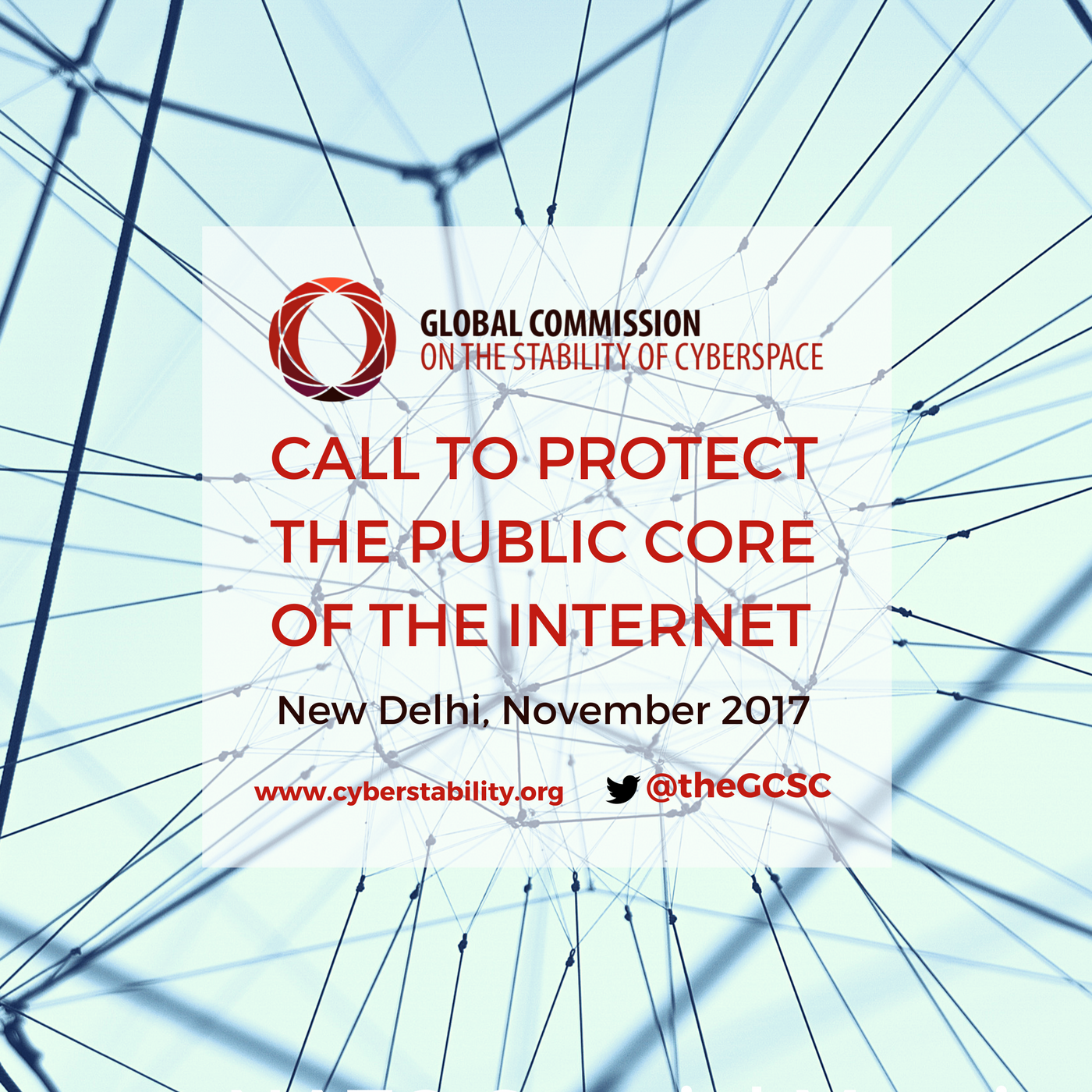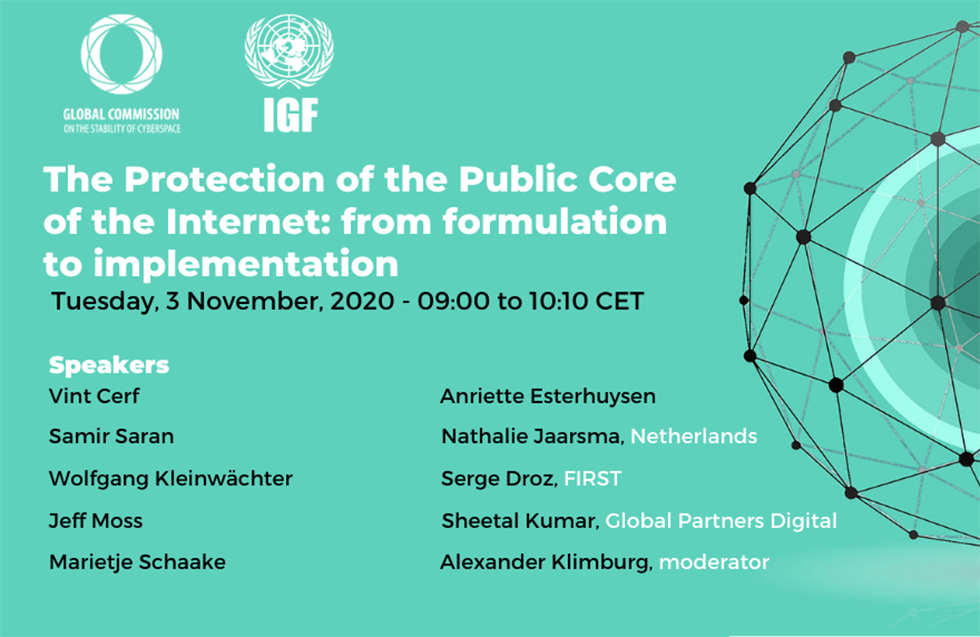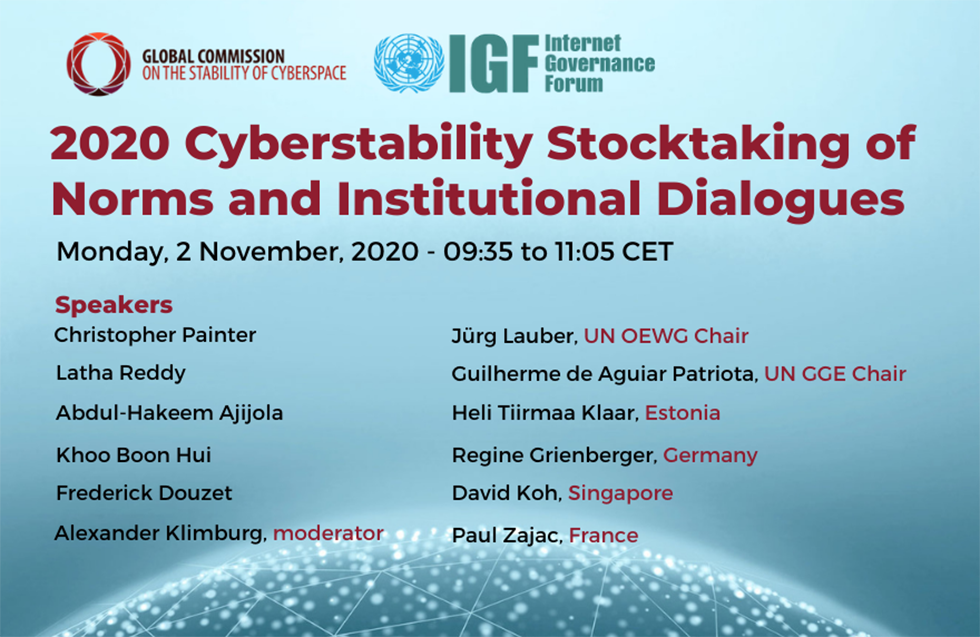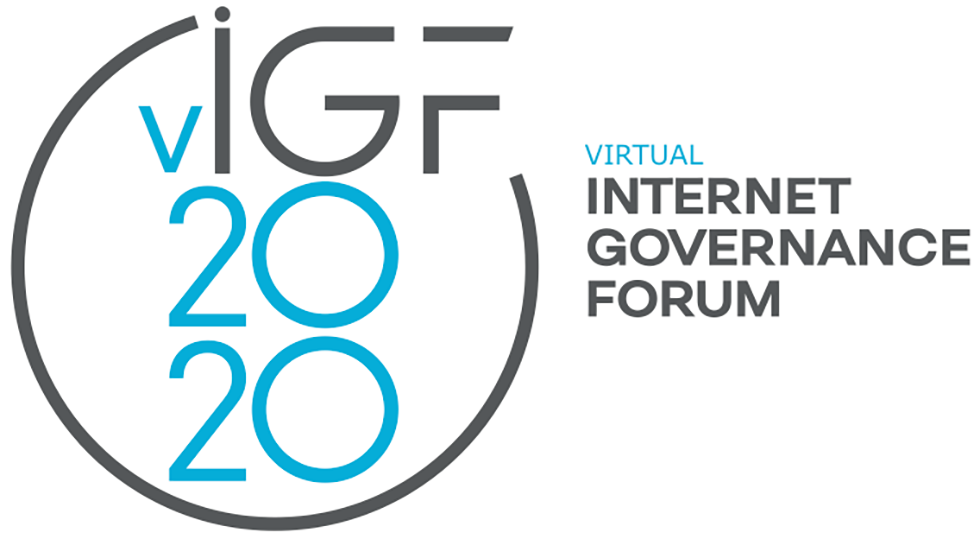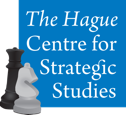NEW DELHI, Nov. 21, 2017, The Global Commission on the Stability of Cyberspace (GCSC) today released a call to action by all Internet stakeholders to safeguard the general availability and integrity of the Internet.
GCSC Commissioners issued a “Call to Protect the Public Core of the Internet“. The declaration urges state and non-state actors to avoid activity that would intentionally and substantially damage the general availability or integrity of the “public core” of the Internet. The Commission believes that the stability of cyberspace is essential for the good of humanity now and into the future.
“In an ideal state, every citizen in the world should be free to enjoy, with confidence and peace of mind, the positive impacts of cyberspace,” commented Marina Kaljurand, GCSC Chair. “Unfortunately, we are not there, yet. Significant cyber incidents are on the increase, and mitigation will require diligent action from all stakeholders, including especially governments and the private sector. This document underscores collaboration, restraint, and protection of the public core, all of which will pave the way for greater security and stability in cyberspace.”
Incidents such as those affecting the Internet domain name system, forging a widely used software validation certificate, and corrupting certificate authorities provide examples of the potential disruptions that could generate widespread consequences for Internet users around the world.
The GCSC issued the document at the conclusion of its fourth meeting on November 20-21 in New Delhi. The meeting took place on the sidelines of the fifth Global Conference on CyberSpace (GCCS), an international gathering that is bringing together more than 4,000 delegates including policymakers, industry players, civil society and academia from over 100 nations.
“Governments play a crucial role in establishing norms and initiatives towards a stable and secure cyberspace, even while some government activity can contribute to instability,” added Latha Reddy, a GCSC Co-Chair and former Deputy National Security Advisor of India. “We trust this document will help move the needle by complementing existing multilateral initiatives and international law, advancing meaningful dialogue, and providing a concrete foundation for the adoption of this and other norms.”
After the Commission Meeting in May, 2018, in Bratislava, the GCSC proposes a definition for the Public of the Internet. As input to its process, a working group of the GCSC conducted a broad survey of experts on communications infrastructure and cyber defense to assess which infrastructures were deemed most worthy of protection. On a scale of zero to ten, with zero being “unworthy of special protection” and ten being “essential to include in the protected class,” all surveyed categories ranked between 6.02 and 9.01.
Accordingly, the Commission defines the phrase “the public core ofthe Internet” to include packet routing and forwarding, naming and numbering systems, the cryptographic mechanisms of security and identity, and physical transmission media. These elements have been further defined in the following document.
Launched at the Munich Security Conference in February 2017, the GCSC is a group of 30 prominent, independent leaders in cyberspace from 16 countries, including chair Marina Kaljurand (Estonia) and co-chairs Latha Reddy (India) and Michael Chertoff (USA). Its mission is to enhance international peace, security, and stability by proposing norms and initiatives to guide responsible state and non-state behavior in cyberspace.
The organization is facilitated by two Co-Secretariats — The Hague Centre for Strategic Studies and the EastWest Institute. The full list of Commissioners is available here.
About The Hague Centre for Strategic Studies The Hague Centre for Strategic Studies (HCSS) is an independent private think tank established in 2007. The Centre focuses on issues that crossover the domains of geopolitics, security, and geo-economics, among which international security and defense, national security, conflict studies, cybersecurity, resource scarcity. HCSS conducts contract research for public sector organizations, such as ministries of defense, foreign affairs and security; international organizations (NATO, European Commission); NGOs as Greenpeace; and private sector companies. We stress an interdisciplinary perspective, combine quantitative and qualitative research methods for our analysis, and present intuitively and action-oriented results. Learn more at www.hcss.nl.
About the EastWest Institute The EastWest Institute works to reduce international conflict, addressing seemingly intractable problems that threaten world security and stability. We forge new connections and build trust among global leaders and influencers, help create practical new ideas and take action. Independent and nonprofit since our founding in 1980, we have offices in New York, Brussels, Moscow, Dallas, Istanbul and San Francisco. Learn more at www.eastwest.ngo.
For additional information, please contact Louk Faesen at loukfaesen@hcss.nl or Conrad Jarzebowski at cjarzebowski@eastwest.ngo.
